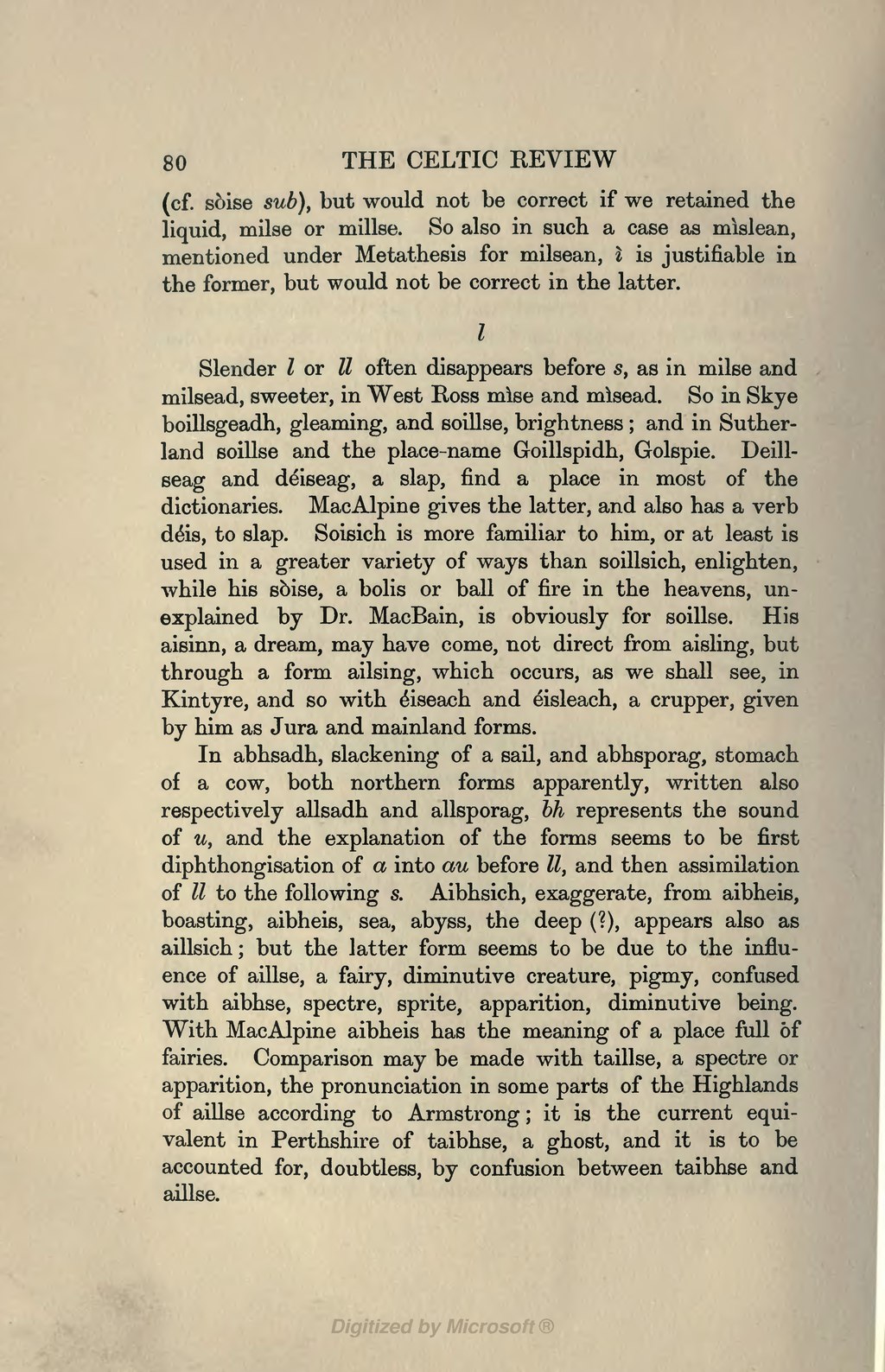(cf. sòise sub), but would not be correct if we retained the liquid, milse or millse. So also in such a case as mìslean, mentioned under Metathesis for milsean, ì is justifiable in the former, but would not be correct in the latter.
l
Slender l or ll often disappears before s, as in milse and milsead, sweeter, in West Ross mìse and mìsead. So in Skye boillsgeadh, gleaming, and soillse, brightness; and in Sutherland soillse and the place-name Goillspidh, Golspie. Deillseag and déiseag, a slap, find a place in most of the dictionaries. MacAlpine gives the latter, and also has a verb déis, to slap. Soisich is more familiar to him, or at least is used in a greater variety of ways than soillsich, enlighten, while his sòise, a bolis or ball of fire in the heavens, unexplained by Dr. MacBain, is obviously for soillse. His aisinn, a dream, may have come, not direct from aisling, but through a form ailsing, which occurs, as we shall see, in Kintyre, and so with éiseach and éisleach, a crupper, given by him as Jura and mainland forms.
In abhsadh, slackening of a sail, and abhsporag, stomach of a cow, both northern forms apparently, written also respectively allsadh and allsporag, bh represents the sound of u, and the explanation of the forms seems to be first diphthongisation of a into au before ll, and then assimilation of ll to the following s. Aibhsich, exaggerate, from aibheis, boasting, aibheis, sea, abyss, the deep (?), appears also as aillsich; but the latter form seems to be due to the influence of aillse, a fairy, diminutive creature, pigmy, confused with aibhse, spectre, sprite, apparition, diminutive being. With MacAlpine aibheis has the meaning of a place full of fairies. Comparison may be made with taillse, a spectre or apparition, the pronunciation in some parts of the Highlands of aillse according to Armstrong; it is the current equivalent in Perthshire of taibhse, a ghost, and it is to be accounted for, doubtless, by confusion between taibhse and aillse.
